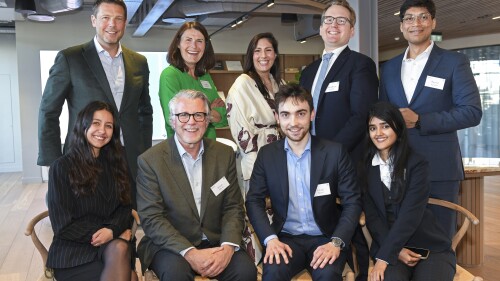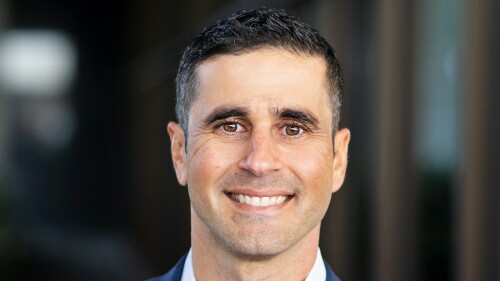The success of ULI’s recent Real Estate Summit at the Spring Council Forum can certainly be measured by the numbers: the event, held in Boston, was open for the first time to all members and drew higher-than expected attendance of more than 3,100. The summit also exceeded expectations in terms of the new program format, designed to elicit more member feedback about key land use–related issues such as demographics, technology, and the outlook for real estate companies. The interactive discussions, involving instant polling, were a new twist on ULI’s longtime tradition of information sharing, and the insights gained will help shape the Institute’s work going forward.
The overriding takeaway from the meeting: things are looking up. Of course, challenges still exist, particularly with regard to deleveraging commercial real estate.
The spring meeting also reflected a sense of optimism about the future of ULI. A new ULI business plan outlining goals and priorities over one year, three years, and five years was approved by the executive committee—a plan to make ULI more efficient, more streamlined, and more focused on core priorities and member needs and preferences. It will better equip ULI to retain and recruit top-quality members, ensure more sources of primary funding, and expand the Institute’s influence among policy makers around the globe.
A major focus of year one of the business plan (fiscal year 2011) is to reinforce ULI’s effectiveness both locally and globally by enhancing the ability of the district councils to collaboratively address regional issues; strengthening the ability of ULI EMEA and ULI Asia to better serve the needs of members in Europe, the Middle East, and Africa, and Asia; and improving internal and external communications, including a stepped-up web presence through the new online Urban Land magazine, which will debut in late June.
The three-year point of the plan (fiscal 2013) assumes increasing revenue from traditional sources, such as conferences, education programs, and advertising, and from new sources of funding through an expansion of the ULI Foundation. Our three-year goals include continuing the focus on boosting the effectiveness of the district councils and capturing that value “upstream” in the national and global programs; continuing the decentralization of and laying the groundwork for the self-sufficiency of ULI EMEA; and continuing to assist ULI Asia in decentralization through more leadership cultivation and creation of more region-specific content. The goal is to make the district councils, the regions, and ULI in general more efficient and more responsive.
The five-year mark (fiscal 2015) assumes achievement of the goals set for years one and three, with ULI operating in a revamped environment in which the entire program of work is fully and continuously informed by member feedback. All of the Institute’s products, services, and activities will be fully integrated and our content will be easily accessible through a range of delivery systems. We will be more fully engaged in public discussions regarding the future of our communities. This will supplement such timeless ULI activities as the annual fall and spring meetings, and enable ULI to reach both broader and deeper, to make a meaningful difference in markets worldwide.
As we begin this evolution for ULI, we want to hear from you. We will be seeking your input through periodic surveys and other communication tools to engage you in the process. We are committed to growing ULI by building on what has worked, and by making improvements that keep the Institute at the forefront of land use leadership.


![Western Plaza Improvements [1].jpg](https://cdn-ul.uli.org/dims4/default/15205ec/2147483647/strip/true/crop/1919x1078+0+0/resize/500x281!/quality/90/?url=https%3A%2F%2Fk2-prod-uli.s3.us-east-1.amazonaws.com%2Fbrightspot%2Fb4%2Ffa%2F5da7da1e442091ea01b5d8724354%2Fwestern-plaza-improvements-1.jpg)


